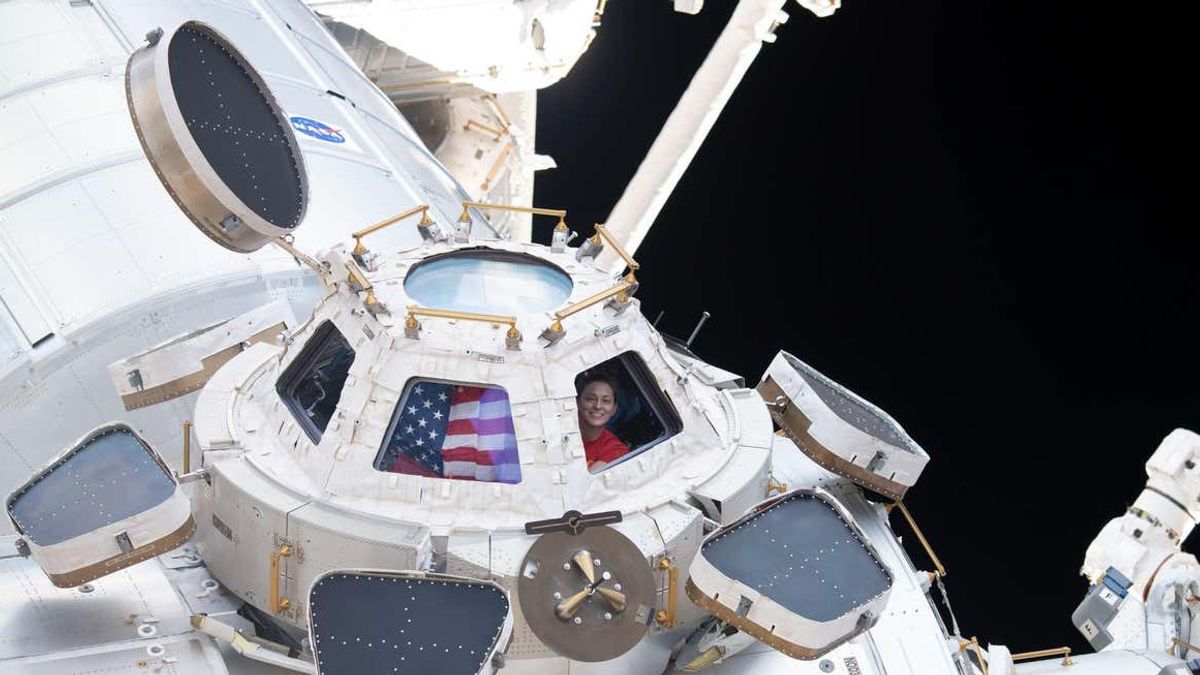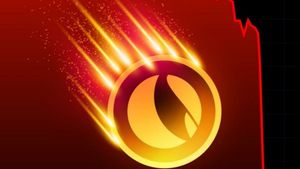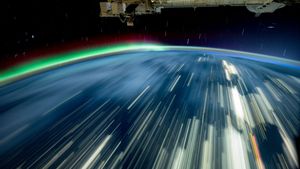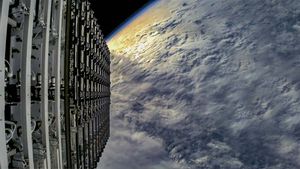JAKARTA - The International Space Station (ISS) was forced to adjust its orbit to avoid disruptive commercial satellites. Chances are, the object is one of many Earth observer satellites still functioning.
Occurring earlier this week, the Progress 83 supply ship docked at the ISS started its engine for more than six minutes, then slightly raised the ISS's orbit to avoid approaching satellites.
About 20 minutes before Progress 83 fired its booster to raise the station's orbit, the controller confirmed the satellite would pass at a distance of about 1.7 miles.
While the distance is safe, the decision is quickly taken to continue maneuvering as Progress 83 boosters have been activated.
NASA did not identify the object, but is thought to be Argentina's Nusat-17, one of the 10 commercial Earth observation satellites that make up the Aleph-1 constellation, operated by Satellogic.
Astrophysicist at Harvard-Smithsonian Astrophysics Center Jonathan McDowell on his Twitter page said the satellite constellation's orbit had gradually decayed and satellites are now crossing the ISS orbit.
Quoted from SpaceNews, Friday, March 10, the orbit stationed by the Satellite Satellogic, launched in 2020 has decayed, the situation hinting at the ISS and other satellites working in similar orbit may have to maneuver in the future as satellites cross their lines.
Currently, NASA and its colleagues are continuing to monitor the orbits of satellites and large space debris close to Earth, so orbit adjustments are not uncommon.
More than 27,000 pieces of orbital debris are currently being tracked by the US Department's Global Space Surveillance Network, with many smaller pieces floating undetected.
In December 2022, the ISS also carried out similar maneuvers to avoid collisions with Russia's threatened top-level Fregate-SB fragments coming within a distance of less than a quarter of a mile, reported by Gizmodo.
The ISS has carried out 32 collision avoidance maneuvers since 1999. The orbital deflection has so far had no impact on astronauts at the Earth-orbiting station.
The English, Chinese, Japanese, Arabic, and French versions are automatically generated by the AI. So there may still be inaccuracies in translating, please always see Indonesian as our main language. (system supported by DigitalSiber.id)













